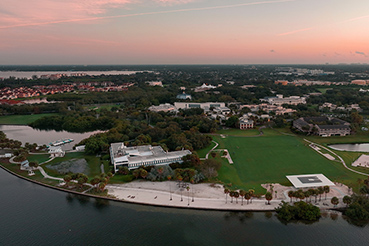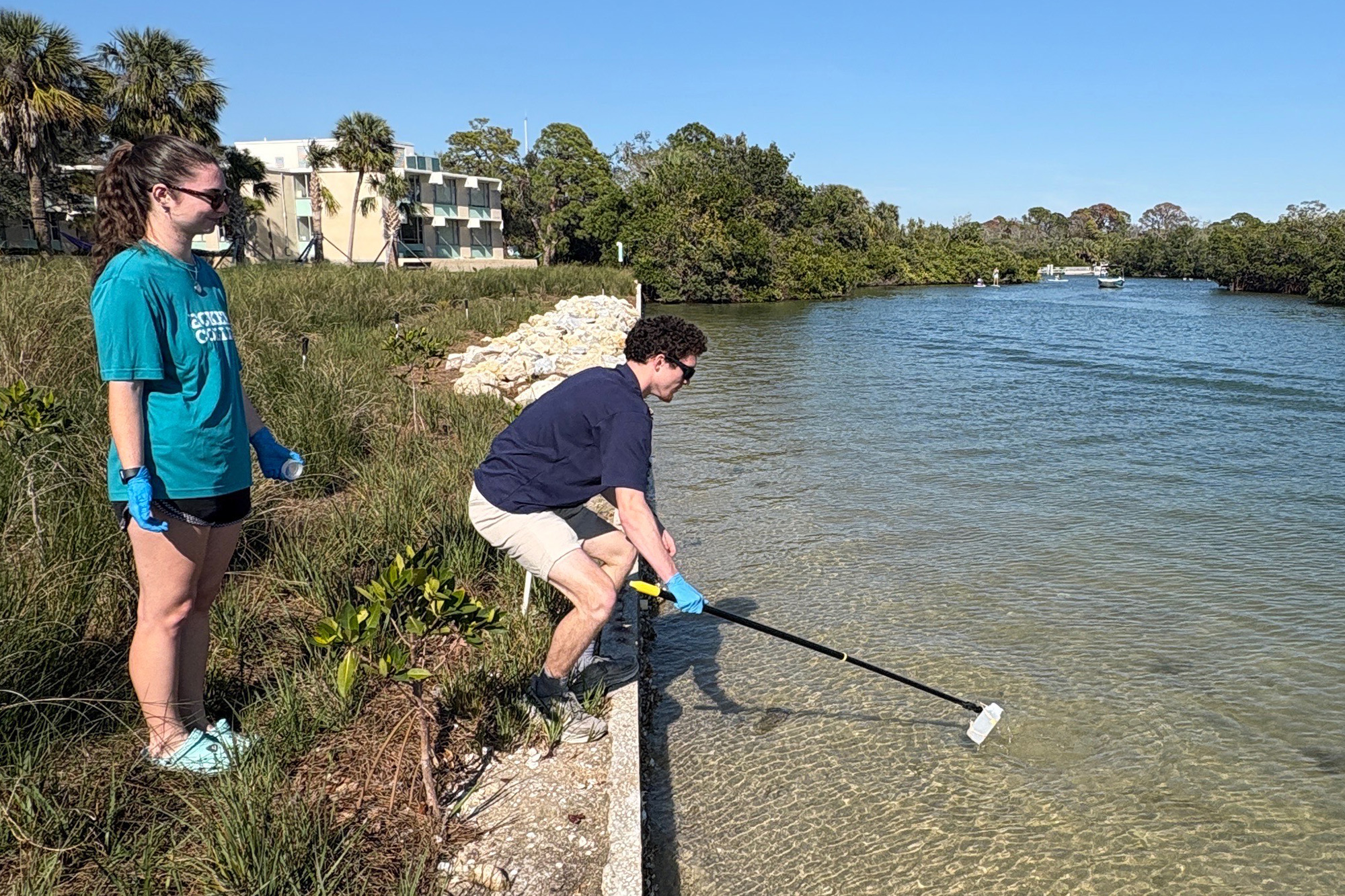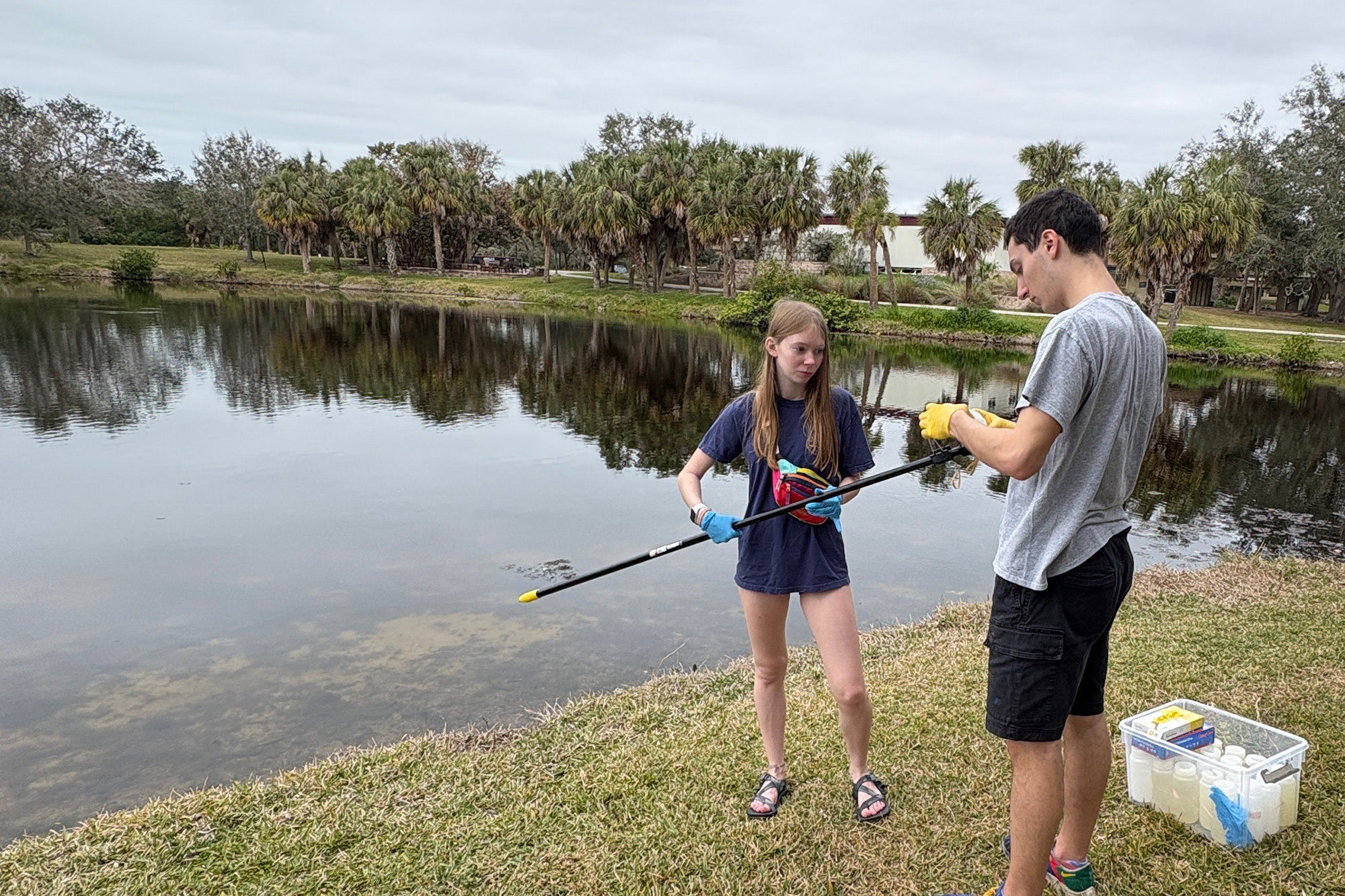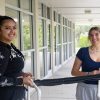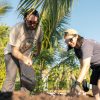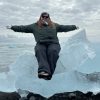A unique part about the Eckerd College experience is the ability to conduct original research as an undergraduate. There are plenty of faculty-run labs across campus that students can join as early as their first year.
The Lancaster Invertebrate Team, or LIT for short, is relatively new. Established in 2024 by Emily Lancaster, Ph.D., assistant professor of marine science, the lab focuses primarily on marine invertebrate species. Notably, members harness environmental DNA to study certain species and communities in Tampa Bay.
Environmental DNA is genetic information found in air, ice, soil and the water column. Organisms shed DNA through waste, respiration, perspiration and other processes. This allows researchers to track the movements of certain species.
“Using techniques like DNA extraction, DNA sequencing [and] quantitative PCR … we can get an idea of who’s been there recently … maybe how many of them have been there recently,” Lancaster explains.
“[Environmental DNA] is an up-and-coming technique that’s being used around the world currently,” she adds.
For Lancaster, eDNA is familiar territory. Before becoming a professor, she utilized it in her research at the University of Maine. Her prior experience inspired her to establish a lab dedicated to the technique at Eckerd.
What makes this lab beneficial to students is the application of practical skills that broaden their career opportunities.
“Students at Eckerd do take genetics, but this is really applied,” Lancaster says. “It’s not just ‘Okay, let’s do a PCR test in a laboratory experiment’ [and] never think about it again. It’s ‘Hey, I actually need to learn this technique, so I can use it in my own research.’”
In its short time on campus, LIT students have started studies on using eDNA to track invasive species, such as the apple snail and green-lipped mussels, and assess movements of bonnethead sharks.
Vincent Ferrero, a senior marine science student from Long Island, New York, is researching ribbed mussels.
“I’m trying … to see how able they are to filter harmful algal blooms,” he says. “If it is successful, that could mean I could patent the idea … and can sell it out to places that suffer from harmful algal blooms.”
Vincent’s interest in this project began in high school when he worked with his teacher to develop a way to clean the water around people’s houses by using mussels as natural filtrators.
“It kind of just started from there, slowly building into what it is now,” he notes.
Lancaster was Vincent’s professor for the Marine Invertebrate course at Eckerd. From that point forward, she has served as a valuable resource.
“She’s really struck my interest as a person that I really want to work with … someone that you want to work with as an undergrad,” he recalls.
Now Vincent is working on a thesis for this project and is awaiting the results of his study.
“Our lab group is just a lot of very kind people who genuinely care about supporting each other, about the environment …,” Lancaster says, “it’s a cool thing to be a part of.”

